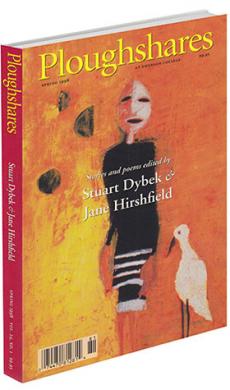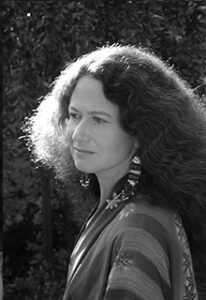rev. of My Sister Life by Maria Flook
My Sister Life
A memoir by Maria Flook. Pantheon Books, $25.00 cloth. Reviewed by Kathryn Rhett.
The author of the novels
Open Water and
Family Night, Maria Flook turns to memoir in
My Sister Life:
The Story of My Sister’s Disappearance, and delivers an original, gripping, intensely moving story. In 1964, Flook’s fourteen-year-old sister Karen disappears, never to return home. Flook, at twelve, is left behind as the only child, but she continues to feel twinned to Karen: “I recognized a mysterious ‘sister life’ unfolding parallel to mine.”
The break between childhood and adolescence can be traumatic, and in
My Sister Life, it is as cataclysmic as the sinking of a ship, one of the book’s leitmotifs. The sinking of the ocean liner
Andrea Doria in 1956 haunts Flook, for in fact her family had tickets for that very passage, but changed their plans at the last minute. Maria and Karen would have been in stateroom 52. Ironically, two other sisters took their place in the room, and when the
Doria collided with the
Stockholm, they were separated forever, one killed, the other pulled from the wreckage.
The attempt to resurrect a lost sisterhood, through language, feels as mammoth an undertaking as restoring the
Doria to its luminous perfection. Boldly, Flook chooses to imagine her sister’s life and present it, in the first-person, through Karen’s point of view: “Karen walks ahead of me through these pages. She’s holding a shoe box of scraps, notes with her half of the story. I am writing this down as it happens.” What happens is awful — Karen becomes a prisoner of fifty-year-old James in a trailer home, then a naval base prostitute — but we are not allowed to stop looking. “Four days after we arrived in Virginia Beach, he burns my clothes. He tells me not to answer the telephone.”
As children, Flook’s parents didn’t have it easy, either. Her father, Ray, was sent to an orphanage by his mother after his father died. Her mother, Veronica, was locked in an apartment alone every night while her French immigrant parents presided over their restaurant. But as parents, Veronica and Ray are shocking, she for her coldness, he for his passive complicity in the rejection of their children. The couple, Flook tries to explain, “were under the spell of an intense erotic sorcery.” Described as a sultry Vivien Leigh, Veronica (never called Mother here) flirts, vamps, and plots her children’s early departures from home. If Flook has come from a legacy of abandonment,
My Sister Life is her attempt to reclaim, to hold fast, to say passionately throughout her own first-person chapters, “Karen and I were
one.”
Karen and Maria’s lives converge at alarming points: they both run away, get locked in rooms by sexual partners, go to jail, and even check into the same hospitals, once on the same day. Sometimes the convergence feels expressive of individual need, Maria pursuing connection with Karen, or Flook, as a writer, constructing parallel biographies. Ultimately, convergence feels like doom, that their parents have set them on a cruel and self-destructive course. One daughter runs away, one stays home, and they both suffer. Who made the better decision? Or is life’s journey a matter of fate, inevitability, like their chance escape from the
Andrea Doria?
Flook’s style is a decisive attempt to embrace the world in all of its grotesquerie and beauty. Unlike her superficial mother, Maria the girl insists on seeing everything — searching, for example, for invisible trails of rat urine at her riding stable through ultraviolet goggles. Flook the writer insists on including spider guts and glistening phalluses, along with beach roses and the Mediterranean. Inclusiveness applies to mood and pacing as well. There is mortal seriousness here, and humor, and intense drama, and meditation. There are stunning singular actions and recurrent images. There is everything a reader could want from an invented world, and such a satisfying book is rare. The well-wrought language shows us elusive truths without showing off. Flook has found a way to give all of her gifts in this book. Can two narrative voices create the whole story? The answer in
My Sister Life is yes, and the book triumphs as a fully realized enactment of desire.
Kathryn Rhett is the author of Near Breathing,
a memoir, and the editor of the anthology Survival Stories.


